Why Do Cats Eat Their Fur? 7 Shocking Reasons: 1. Stress 2. Boredom 3. Allergies 4. Nutritional Deficiency 5. Anxiety 6. Skin Irritation.
Why Do Cats Eat Their Fur?
Have you ever seen your cat chewing or swallowing its own fur and wondered why? It may seem unusual, but cats exhibit this behaviour for several reasons.
Sometimes it’s a result of regular grooming, but sometimes it’s a sign of stress, boredom, or underlying health problems.
This straightforward guide explains why cats eat their fur, what it means, and how you can help your pet stay happy and healthy.
Natural Grooming vs. Excessive Fur Eating
Cats are spotless animals. They lick themselves to:
- Remove dirt and loose fur
- Spread natural oils on their skin
- Stay cool and comfortable
When cats groom, they swallow a small amount of fur — this is normal.
Usually, it passes through their body or becomes a small hairball that they cough up.
But when your cat starts chewing or swallowing a lot of fur, that’s not normal.
It can cause vomiting, hairballs, or tummy pain.
| Type of Grooming | Description | Effect on Cat |
|---|---|---|
| Normal Grooming | Short, light licking to clean the body | Keeps fur clean and shiny |
| Excessive Fur Eating | Long, repeated licking or chewing in one spot | Can cause bald patches and stomach upset |
Reasons Why Cats Eat Their Fur
Here are the main reasons cats might eat or chew their fur.
| Reason | Explanation (Easy to Understand) |
|---|---|
| 1. Normal Grooming Habit | Cats clean themselves daily. They swallow small bits of fur by accident — this is natural. |
| 2. Stress or Anxiety | Loud noises, new people, or moving homes can make cats nervous. They may lick too much to calm down. |
| 3. Boredom | If a cat doesn’t have toys or playtime, it might start licking or chewing its fur for fun. |
| 4. Skin Problems | Allergies, fleas, or dry skin can make cats itchy, so they lick or chew to stop the irritation. |
| 5. Nutritional Deficiency | Poor diet without enough protein, fiber, or fatty acids can make cats lick or eat fur more often. |
| 6. Medical Issues | Sometimes, problems like thyroid disease or pain can cause over-grooming. A vet check is needed. |
Each of these reasons affects your cat differently, so it’s important to watch their behaviour closely.
Signs That Fur Eating Is a Problem
You can tell your cat’s fur-eating is becoming serious if you notice:
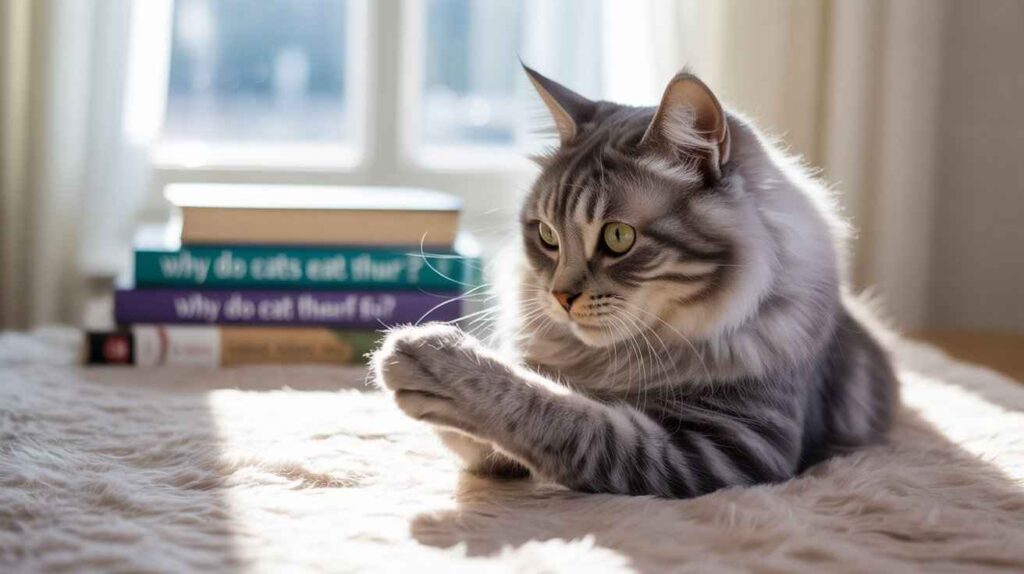
- Bald spots or thinning fur
- Frequent hairballs or vomiting
- Red or irritated skin
- Changes in mood — hiding, acting scared, or aggressive
- Constant licking of one area
If your cat shows any of these signs, don’t ignore them — your pet might be uncomfortable or sick.
How to Stop or Prevent Fur Eating
You can help your cat stop eating fur by following these simple steps:
1. Brush Your Cat Regularly
- Brush your cat every day to remove loose fur.
- Long-haired cats need extra brushing.
- This keeps fur off their tongue and reduces the formation of hairballs.
2. Keep Your Cat Busy
- Give your cat toys, scratching posts, and climbing trees.
- Spend time playing every day.
- A busy cat is a happy cat — and won’t chew fur out of boredom.
3. Feed a Healthy Diet
- Choose food that is high in protein, fibre, and omega-3 fatty acids.
- Ask your vet for diet advice.
- A balanced diet keeps your cat’s skin and coat healthy.
4. Reduce Stress
- Keep your home calm and quiet.
- Avoid sudden changes in routine.
- Provide hiding spots or a cosy bed where your cat feels safe.
- You can also try calming sprays or pheromone diffusers.
5. Visit the Veterinarian
- If your cat is constantly eating its own fur or developing bald spots, it’s best to visit a veterinarian.
- The vet can check for skin allergies, parasites, or other health problems.
- Early treatment helps your cat recover more quickly.
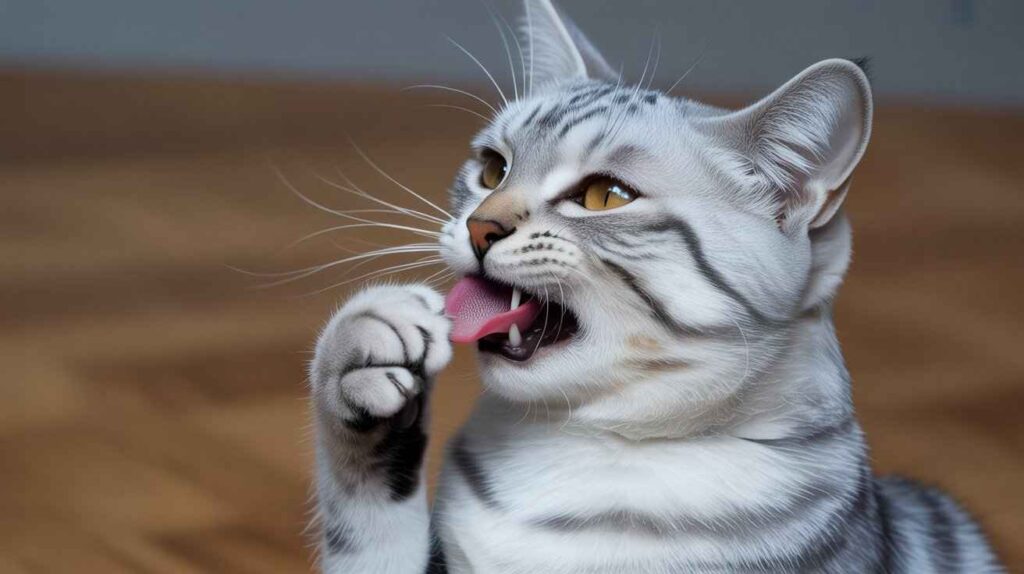
When to See a Vet
You should contact your vet if your cat:
- Loses fur quickly or has bald patches
- Vomits hairballs often
- Has itchy or red skin
- Seems upset, hides, or avoids food
- Licks or chews the same spot for hours
A vet will do a complete check-up and might suggest:
- Skin or blood tests
- A change in food
- Medicine for allergies or parasites
- Stress-relief treatments
Getting help early prevents the problem from worsening.
Simple Home Tips to Help Your Cat
Here are some easy daily habits to protect your cat’s fur and skin:
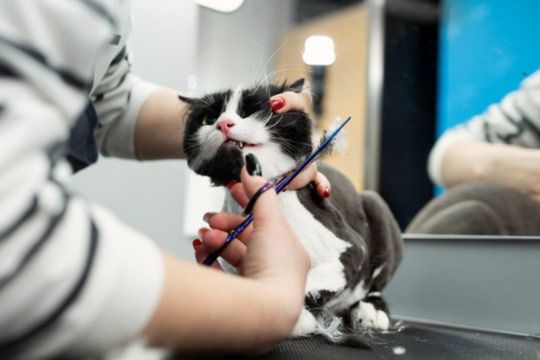
- Keep your cat’s coat clean and brushed.
- Provide scratching posts to distract from over-grooming.
- Make playtime part of your cat’s daily routine.
- Clean your home to prevent fleas or dust.
- Reward calm and relaxed behaviour with gentle petting or treats.
These small steps make a big difference in keeping your cat healthy and calm.
FAQs
Q1: Is it normal for cats to eat their fur?
Yes, a little bit is normal during grooming. But too much fur eating can cause hairballs or stomach problems.
Q2: Why do cats eat fur when they’re stressed?
When cats feel scared or anxious, they lick or chew fur to calm themselves — it’s like a comfort habit.
Q3: Can food help stop fur-eating?
Yes. A healthy diet with protein, fiber, and omega-3 keeps skin soft and reduces itching.
Q4: How can I stop my cat from eating fur?
Brush your cat, play with them often, reduce stress, and check their diet. If it continues, see a vet.
Q5: When should I worry?
If your cat has bald spots, vomits hairballs, or seems sad or sick — go to the vet right away.
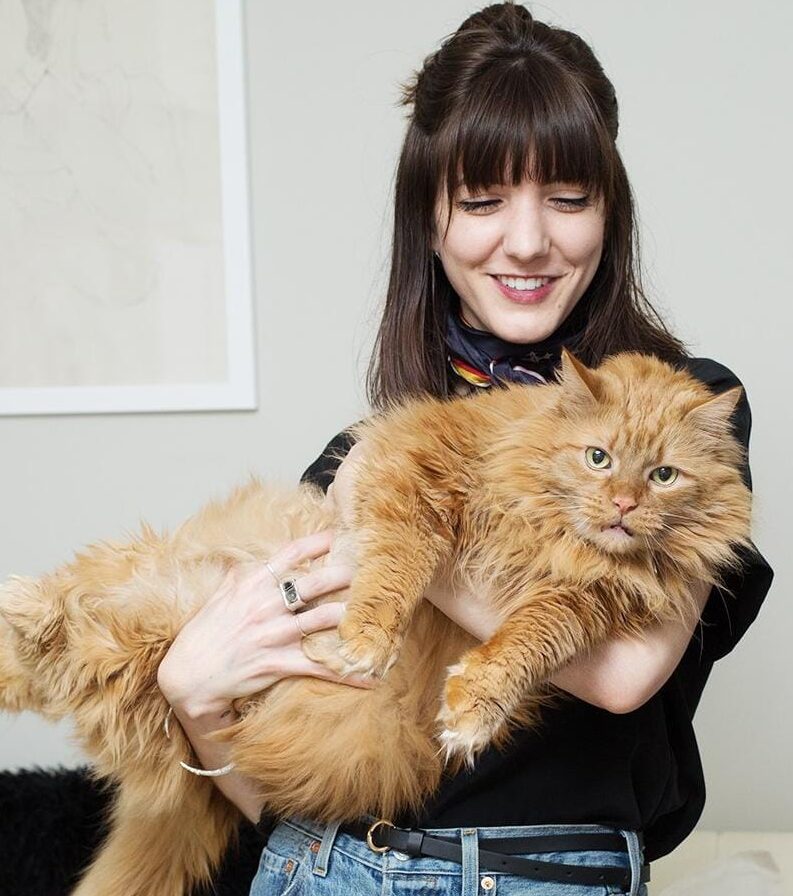
Hi, I’m Sana Sajid!I’m the voice behind CatsCare.blog, sharing my 10+ years of hands-on cat care experience. With a diploma in animal care, I offer practical tips, trusted advice, and easy-to-follow guides to help keep your cats healthy and happy.
When I’m not writing, I spend time with my own cats or exploring the latest developments in feline health. Follow CatsCare.blog for expert insights and real cat stories!

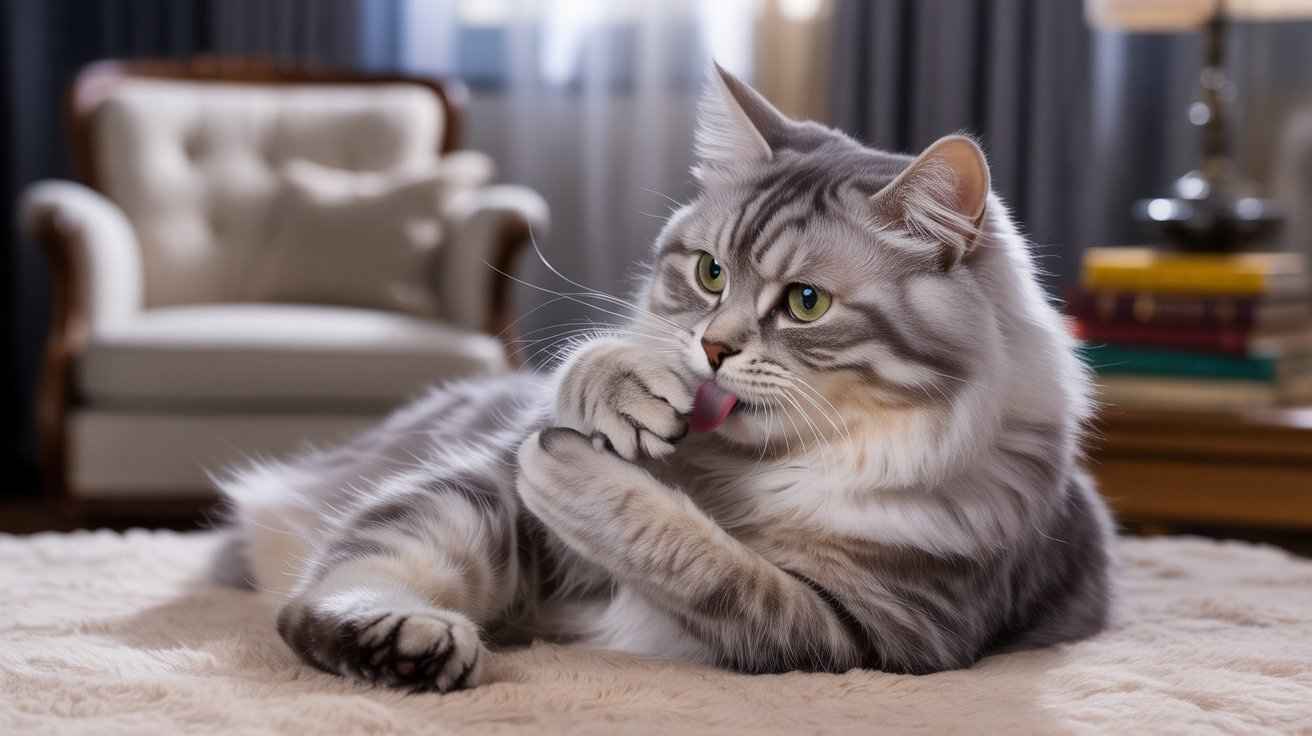
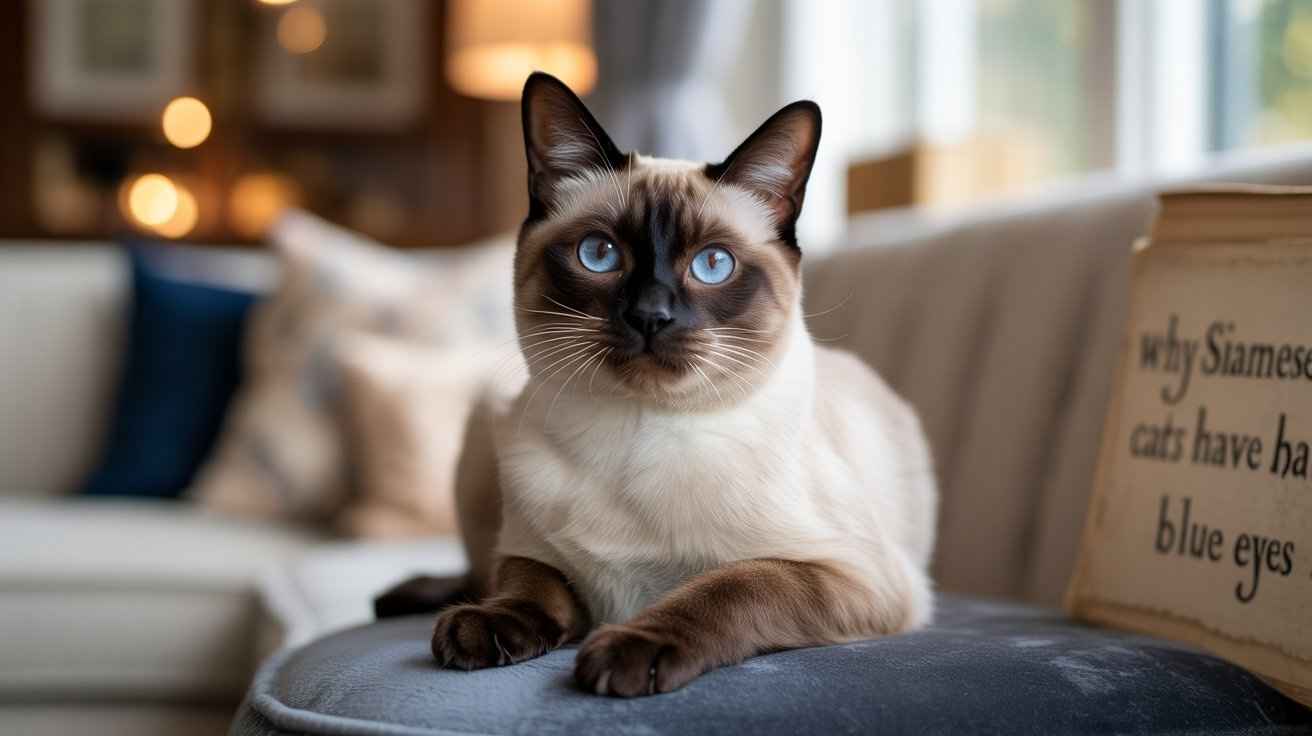
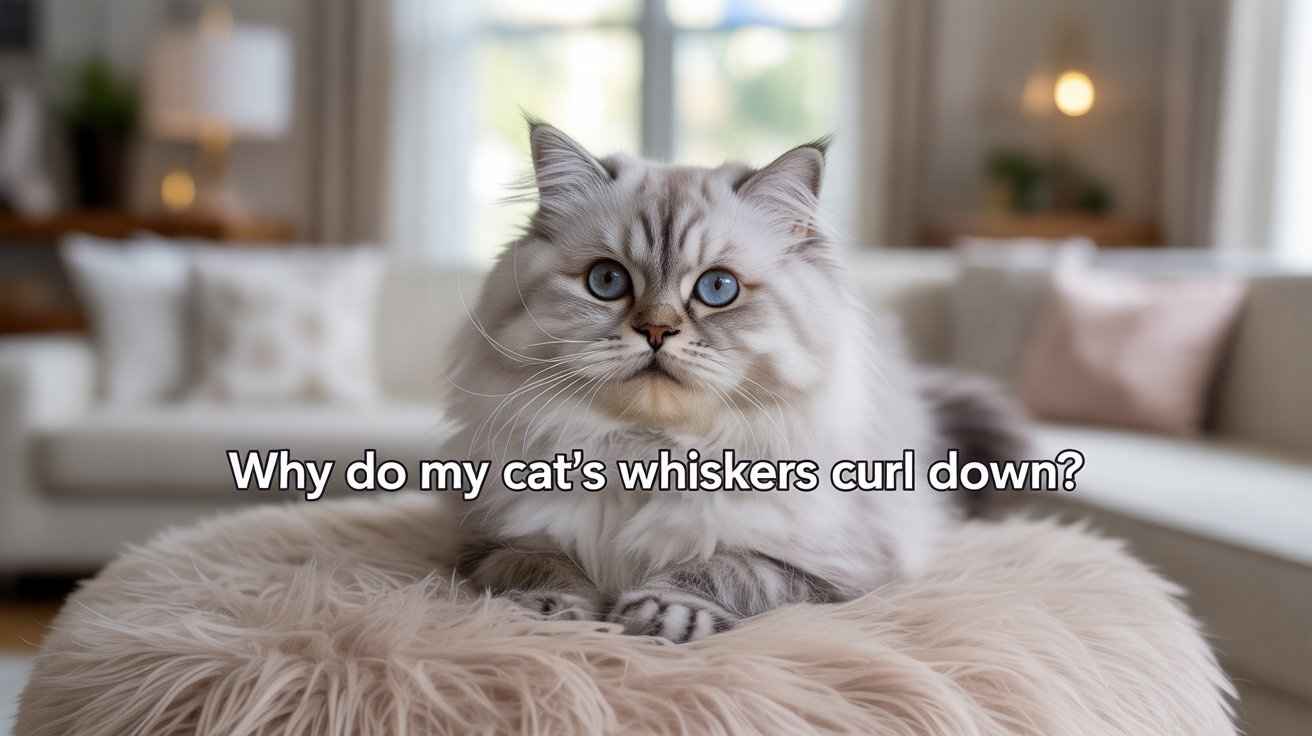
![A close-up portrait of an orange and white tabby cat indoors, used to illustrate the topic of [Vets against raw Diet for Cats].](https://catscare.blog/wp-content/uploads/2025/12/Vets-against-raw-Diet-for-Cats.jpg)
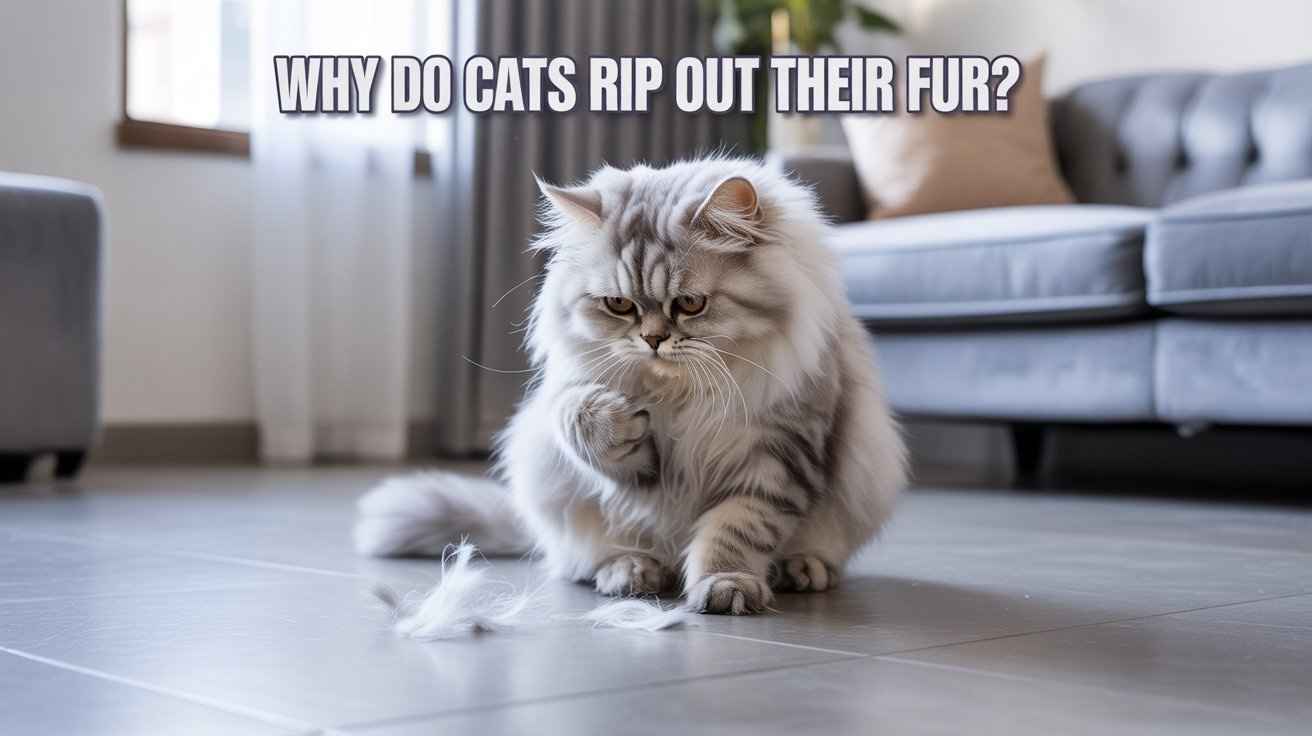
4 thoughts on “5 Shocking Reasons Why Do Cats Eat Their Fur?”